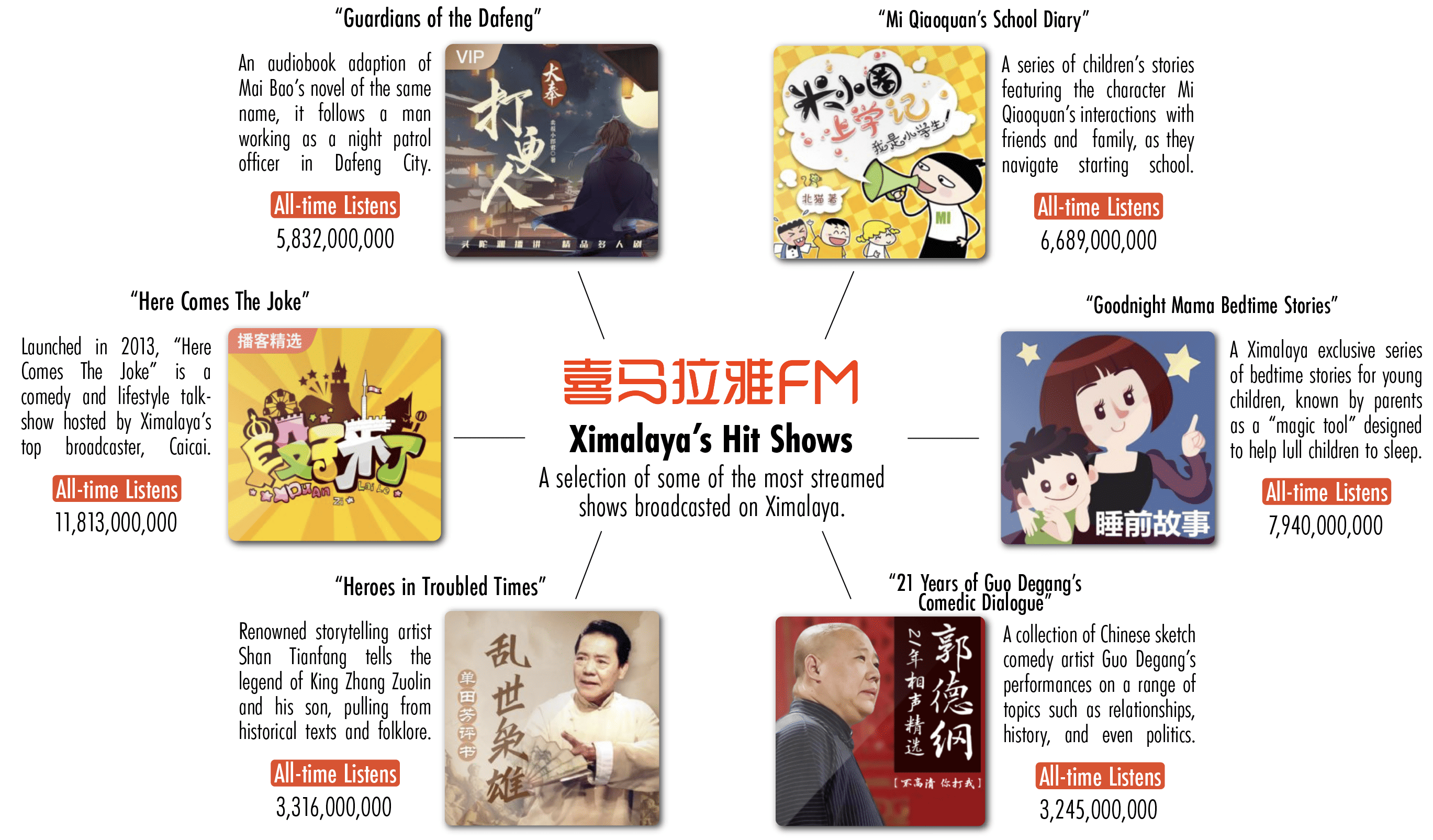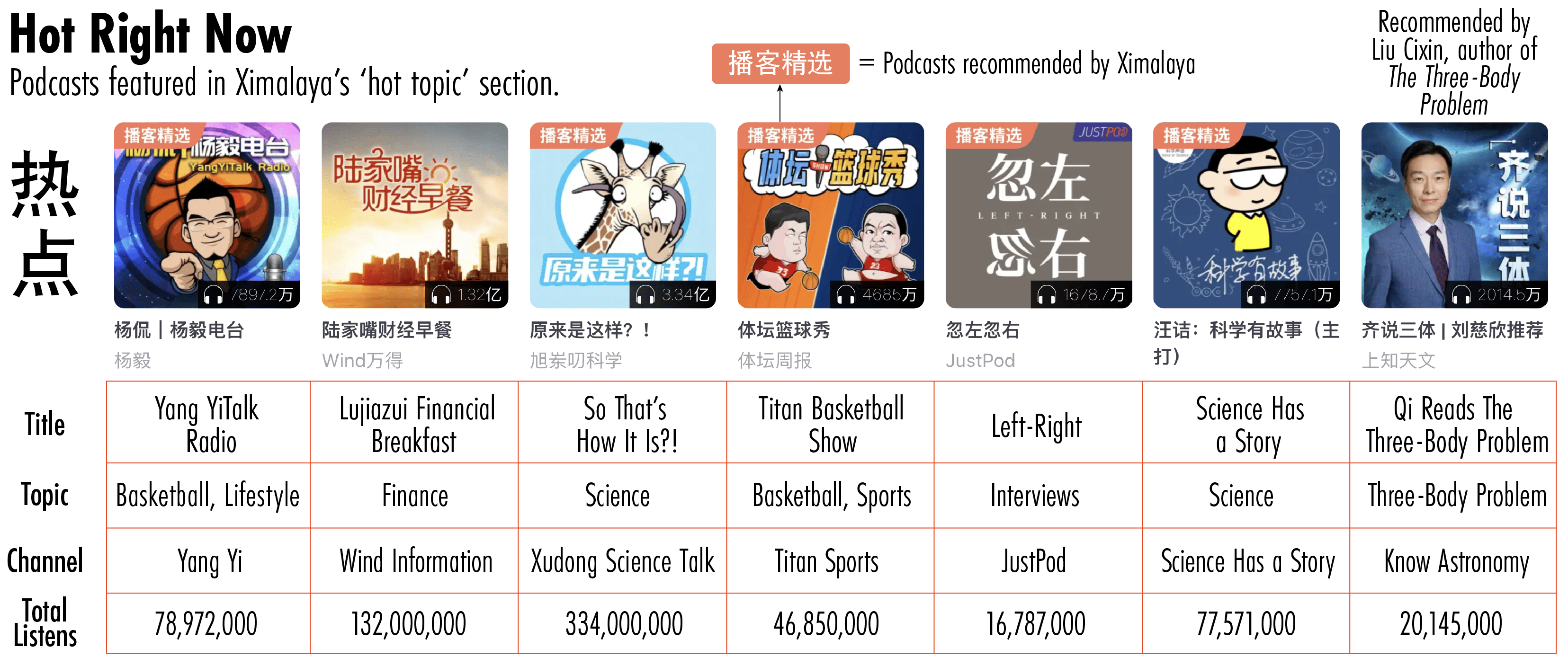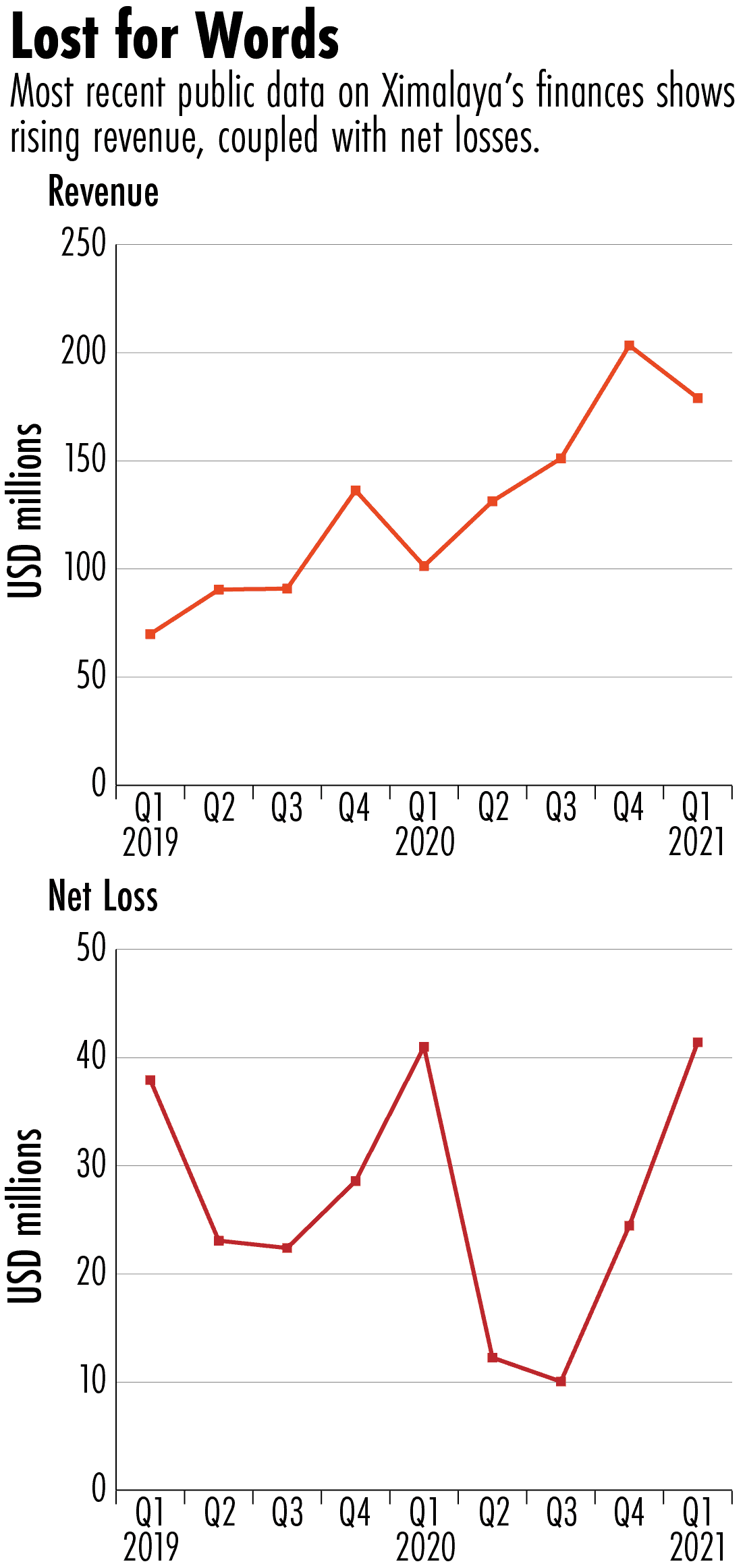
Listening to podcasts has become a favorite way for commuters the world over to while away their journeys, and China is no exception. One company scaling the peaks of the local industry is Ximalaya, whose output accounted for nearly two-thirds of the online audio market in China last year, according to data mining company iiMedia Research.
Founded in 2012, Ximalaya originally had a target of 10 million subscribers — just two years later, it had reached 100 million. Podcasts are a big part of the company’s offering, with more growth to come: one in ten Chinese people will be listening to a podcast at least once a month by 2024, consultancy Brands Without Borders reckons.

This week, we take a look at Ximalaya’s place in the world of online audio and podcasting, and reflect on where the industry could go from here.
TUNING IN
Ximalaya’s two founders, Yu Jianyun and Chen Yuxin (sometimes referred to as Chen Xiaoyu), first collaborated in 2009 on a virtual reality project. Yu, who had spent time after graduating with a masters in mechanical engineering dabbling in various software projects, persuaded Chen to set up the company in 2012 off the back of his prediction that podcasting would soon blossom into a mainstream industry, according to a 2019 interview. (The firm also got a significant investment from the Zendai Group, which was run by Dai Zhikang, the Shanghai-based property tycoon and art collector who controlled a large art museum in Shanghai. Dai was arrested in 2019 for operating an illegal financing schemes.)
At first, Ximalaya offered content on the platform for free, earning revenue from ads on the site and promotional campaigns from brands such as Tencent, Xiaomi, and even KFC. The company encouraged publishers to sell it their audio adaption content licenses, enabling it to produce high-quality audiobooks.
Within two years, Ximalaya had garnered around 6,000 content contributors — a mix of professional and amateur content creators — and was managing 240,000 channels along with three million individual episodes. Shows on the site covered standard areas like ‘history’, ‘sports’, ‘health’, and ‘news’, as well as speciality interests such as ‘paranormal activity’ and ‘life at the workplace’.

In 2016, the company sought to raise its average revenue per user by launching a separate paid-content segment. Subscribers to Ximalaya’s platform can these days pay a monthly fee of 20 yuan (around $3) to access ‘VIP’ content — typically on a specialist subject or connected to a famous celebrity, such as the recently released Elon Musk biography — or pay a flat price to download specific episodes.
SPEAKING OUT
Among its innovations, Ximalaya has developed its own speaker, the Xiaoya Smart Speaker, and other smart devices that easily connect to the Ximalaya platform, keeping consumers ‘tuned in’ to their ecosystem.
Leading brands from carmaker BYD to video game maker MiHoYo have been attracted to the ‘ear economy’ (a term coined by Ximalaya), either partnering with Ximalaya directly or simply setting up their own branded channel on the site to offer premium content. In 2018, insurance giant Ping An even co-hosted a festival with Ximalaya on the theme of ‘spiritual wealth’.

Another major collaboration has been with Pottermore Publishing, the global audiobook and eBook publisher of the Harry Potter series. The deal has allowed Ximalaya to release Chinese language recordings of the books with “sound effects and a specially commissioned musical score”, solely on its platform. Chapters are only accessible with a VIP subscription or can be purchased individually.
Ximalaya employs its own content moderation system, but the Chinese government has also intervened before to ensure that certain content does not make its way onto the platform. In 2017, podcast episodes related to religion were taken off Ximalaya at the request of the government, according to Global Times, a Chinese state-owned tabloid.

VOLUME DOWN
Despite its success in attracting listeners, Ximalaya has rarely made a profit since its beginnings. In 2021, it suffered a net loss of just over five billion yuan (around $775 million), and only turned a profit in the fourth quarter of 2022 according to CEO Yu Jianjun, as reported in Chinese language media outlet ITHome.
Copyright licenses account for a big chunk of Ximalaya’s costs, based on a prospectus for a planned initial public offering on the New York Stock Exchange in 2021. By that time the company was paying out just over a quarter of its revenue to copyright owners and content creators.
Ximalaya withdrew its plan to list in the U.S. in the wake of the controversy over Didi Chiuxing’s troubled IPO. A later effort to go public in Hong Kong foundered in December 2022, after Ximalaya failed to meet its fundraising target thanks to investors’ wariness over tech sector regulatory crackdowns, according to reporting from Bloomberg.
NEXT EPISODE
Co-founder Yu Jianjun attributed the turnaround of profits last September to reducing costs, being more “user-centric”, and streamlining the company’s overall focus and goals, but are things really looking up for Ximalaya?
One opportunity for the company could be tie-ups with foreign peers. In June, Ximalaya announced a partnership with Apple, certifying it as a hosting platform for Apple Podcasts.
Such deals show that Ximalaya “has provided a route for international services to grow in the Chinese market” says Georgina Howes, a principal consultant at tech research and advisory firm, Omdia.

Ella Apostoaie is an editorial associate at The Wire. She is a 2021 graduate of Wellesley College, where she majored in East Asian Studies, with a primary focus on Chinese history and politics. Ella grew up in Norwich, England and is now based in the Boston area.



